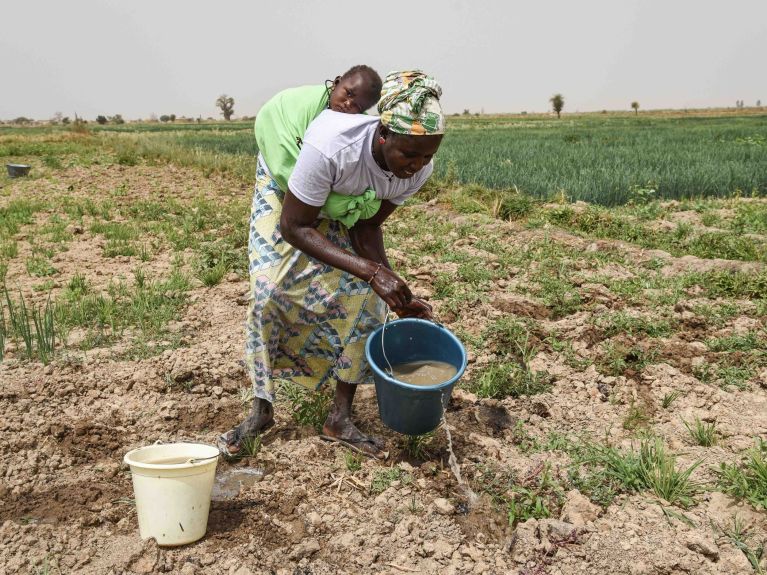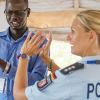International alliance of helpers
Germany’s role in the Sahel Alliance – comprehensive support for a crisis region

One of world’s poorest regions and with a rapidly growing population, the Sahel is also one of the global hotpots that is most severely affected by climate change. What is more, the UN describes the region as an “epicentre of violent Islamic terrorism”. Military coups in Mali, Burkina Faso and Niger have further exacerbated the situation. Under the leadership of the Foreign Ministry and the Development Ministry, Germany is one of the most important international donors in the Sahel region. The aim is to promote people’s self-sufficiency while at the same time boosting education, training and employment.

The Sahel Alliance coordinates international support
In 2017, Germany, France and the EU founded the Sahel Alliance with the aim of achieving more effective coordination of international aid for the region. With 18 full members and nine observers, it has become the largest international platform for supporting development initiatives. Its members are providing funds of more than 23 billion euros for the region. Since 2018, it has been possible to support more than four million people in over 3,000 villages; the figure is to be increased to eight million by 2027. The current President of the Alliance, German Development Minister Svenja Schulze, announced at the 5th General Assembly of the Alliance in Berlin in July 2024 that two million boys and girls were to have access to educational programmes by 2031. One particular focus is on girls aged between 12 and 16. Schulze said the partnership “addresses the root causes of the crisis in the Sahel region: by enabling villages to regain self-sufficiency in terms of their food supply, having children go back to school and get meals there, and offering young people the prospect of jobs and income once again.”
What are Germany’s goals for the Sahel region?
The German government’s commitment is primarily aimed at stabilising the civil society, addressing the causes of the crisis and providing humanitarian aid where it is needed. But by promoting sustainable development, self-sufficiency, education, training and job creation, the aim is to make humanitarian aid superfluous in the long term. Germany’s commitment goes beyond the Sahel states themselves, also including the neighbouring West African countries of Senegal, Côte d’Ivoire, Ghana, Togo and Benin.


